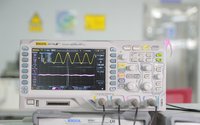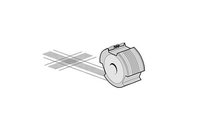Free drop test drop test detection standards and conditions
Date:2021-07-28 10:30:00 Views:6217
Drop test, also known as "packaging drop tester": it refers to the situation when different edges, angles and surfaces fall to the ground at different heights after product packaging. So as to understand the damage of the product and evaluate the degradation height and impact strength that the product packaging components can bear when falling. So as to improve and perfect the packaging design according to the actual situation of the product and within the scope of national standards.
Drop test procedure:
Preparation of sample plate before test.
Before the test, the function, safety and appearance of the product must be tested, and the drop test can be carried out only after it is confirmed to be normal.
The samples shall be packed according to the specified method (refer to the production instruction or specification), and the accessories shall not be missed.
If there are special requirements for sealing the box (such as tape), it shall be carried out according to the requirements. If there are no special requirements, the box shall be sealed with 2-inch transparent adhesive tape, and the external card through box shall be sealed with 3-inch transparent adhesive tape.
The test samples shall not be less than 2 full boxes or 4 pcs of finished products.
Drop sequence.
Bottom corner of seam edge.
There are special national standards for drop test. The drop mode is a free falling body with one corner, three sides and six sides, and the drop height is determined according to the product weight.
It is divided into 90cm, 76cm and 65cm grades
Weight of packaged goods (LBS) / (kg) falling height (inches) / ((CM)
1~20.99 lbs(0.45~9.54㎏) 30 in /(76.20㎝)
21~40.99 lbs(9.55~18.63㎏) 24 in /(60.96㎝)
41~60.99 lbs(18.64~27.72 ㎏)18 in /(45.72㎝)
61~100 lbs(27.73~45.45㎏) 12 in /(30.48㎝)
General enterprises will tighten the test during implementation, and the drop will be carried out according to 1 meter. If 1 meter is OK, the national standard will be OK.
_20210728102938_167.jpg)
This test is divided into two methods The first method is usually used to simulate the free fall of unpackaged products during handling. The sample usually falls from the specified height to the specified surface twice according to the specified state The second method is usually used to simulate the repeated free fall of connectors attached to cables, small remote control devices, etc Repeatedly drop the test sample from the specified height to the specified surface
Method 1: free fall
Purpose of test:Determine the adaptability of falling due to rough handling during handling, or determine the minimum firmness level of safety requirements
This test is mainly used for non packaged test samples and test samples that can be packaged as part of the sample in the transport box
Test conditions:
Test surface: the test surface shall be a smooth, hard, rigid surface made of concrete or steel If necessary, other surfaces may be specified in relevant specifications
Drop height: refers to the height between the test surface and the nearest sample when the test sample is suspended before dropping
Release method: the test sample shall be released in such a way that the test sample falls freely from the suspended position When releasing, minimize interference
Drop height: 25mm, 50mm, 100mm, 250mm, 500mm, 1000mm
Method 2: repeat free fall
Test purpose: identify cable connected component type devices that may fall frequently to hard surfaces.
This test method is to drop the test sample from the specified height to the hard surface for a specified number of times. In order to simulate the actual conditions, each test sample shall be tested separately and usually with a section of cable. The test results shall be evaluated by the changes of mechanical and electrical properties of the test samples.
Falling height: 500mm
Number of falls: 501002005001000.
Drop frequency: the drop frequency is 10 times per minute.
Test surface: the test sample shall fall on a smooth, hard and firm test surface of 3mm thick steel plate lined with a wood plate with a thickness of 10mm-19mm.
The detection standards of free drop test are as follows:
Environmental tests for electric and electronic products Part 2: Test methods Test ED: free fall GB / T 2423.8-1995 / IEC 60068-2-32:1990
Packaging - drop test method for transport packages GB / T 4857.5-1992 / ISO 2248:1985
Quantitative data for preparation of performance test program for packaging and transportation packages GB / T 4857.18-1992 / ISO 4180-2:1980
General specification for military communication equipment GJB 367a - 2001
General specification for military computer GJB 322a-1998
General specification for military electronic test equipment gjb3947a-2009
General specification for electronic measuring instruments GB / T 6587-2012
Conclusion: after a product is packaged, it may fall during handling, and the impact will damage the product. Therefore, general manufacturers will conduct drop test on the packaged articles. The drop height is mainly determined by the product weight, but according to various standards, samples with the same weight may have different heights. Therefore, we must know what standard to use before doing the test.




 Weixin Service
Weixin Service

 DouYin
DouYin
 KuaiShou
KuaiShou





















